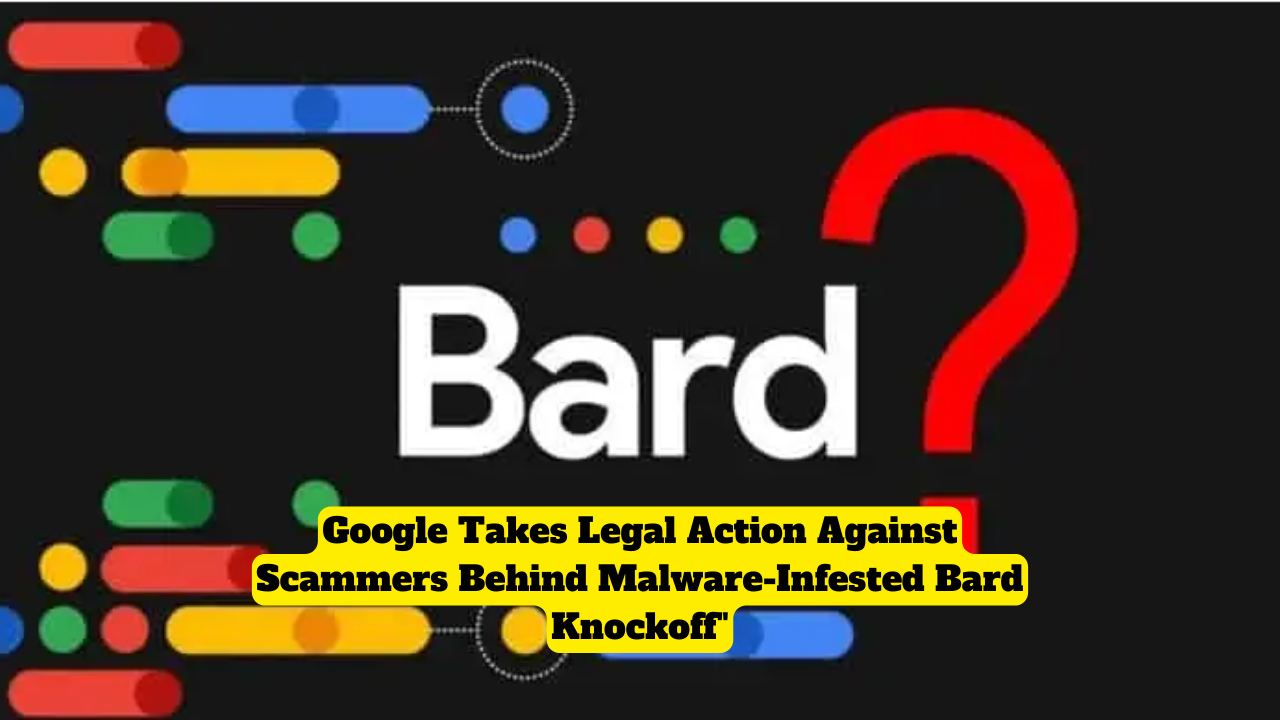Google Takes Legal Action Against Scammers Behind Malware-Infested Bard Knockoff"
"Explore Google's legal battle against scammers accused of distributing a malware-infested knockoff of its Bard AI. Uncover the deceptive tactics used on platforms like Facebook and the measures Google is taking to protect users from such cyber threats."
Google's Lawsuit Against Bard Knockoff Scammers
Introduction: Google's Lawsuit Against Bard Knockoff Scammers
In the ever-evolving landscape of technology, scams and malware threats are on the rise. Google recently filed a lawsuit against scammers who exploited the popularity of its AI technology, Bard. This blog explores the details of the lawsuit, shedding light on how cybercriminals targeted unsuspecting users.
Unveiling Google's Legal Battle Against Bard Knockoff Scammers
The Rise of Scams in the Age of Generative AI
The allure of cutting-edge technologies like generative AI has created an environment ripe for exploitation. Google finds itself combating scammers who took advantage of the confusion surrounding its Bard AI software.
The Allegations Against Vietnamese Scammers
Google's legal action centers around individuals based in Vietnam who allegedly set up a scheme to distribute a counterfeit version of Bard. This fake AI, instead of providing the intended assistance, was loaded with malicious software designed to compromise users' security.
Facebook as a Gateway for Deception
The lawsuit highlights the scammers' preference for Facebook as a distribution channel. Through social media pages and ads, these individuals lured users into downloading the fraudulent Bard, ultimately leading to the theft of passwords and social media credentials.
Conclusion:
As technology advances, so do the tactics of cybercriminals. Google's proactive lawsuit serves as a crucial step in safeguarding users from scams targeting emerging AI technologies. The battle against deceptive practices continues, emphasizing the need for user awareness and legal action to curb such threats.
Frequently Asked Questions (FAQs) About Google's Lawsuit Against Bard Knockoff Scammers
Q1: What is the lawsuit filed by Google regarding Bard knockoff scammers?
A1: Google has filed a lawsuit against individuals, primarily based in Vietnam, who allegedly distributed a fake version of its Bard AI. The lawsuit accuses them of using deceptive tactics, such as social media ads, to trick users into downloading the counterfeit Bard, which was loaded with malware.
Q2: How did scammers use Facebook in their deceptive scheme?
A2: The scammers employed Facebook as their preferred distribution method. They set up social media pages and ran ads enticing users to download the fraudulent Bard. Once users fell for the scheme and downloaded the fake AI, their systems were compromised, leading to the theft of passwords and social media credentials.
Q3: What measures did Google take before filing the lawsuit?
A3: Before resorting to legal action, Google sent over 300 takedown requests to address the issue. The company aimed to curtail the scammers' activities and prevent them from setting up similar domains. The lawsuit serves as a deterrent and seeks to establish a mechanism to prevent similar scams in the future.
Q4: What does the lawsuit aim to achieve?
A4: The lawsuit does not seek financial compensation. Instead, Google is pursuing an order to stop the alleged fraudsters from setting up similar domains, especially with US-based domain registrars. The goal is to deter such deceptive practices and provide a clear mechanism for preventing similar scams involving AI technologies.
Q5: How are emerging technologies vulnerable to anti-consumer weaponization?
A5: The lawsuit highlights the vulnerability of emerging technologies, like generative AI, to misuse by bad actors. In this case, scammers capitalized on consumer confusion, falsely claiming Bard to be a paid service requiring a download when, in reality, it is a free web service.
Q6: What precautions can users take to avoid falling victim to such scams?
A6: Users are advised to exercise caution when encountering ads or pages offering downloads of AI software. Verifying information from official sources and being aware of the characteristics of deceptive schemes can help users avoid falling victim to scams targeting popular technologies like Bard.
Disclaimer: The information provided in these FAQs is based on the context of the blog post and may be subject to updates as the legal situation unfolds.
Written by: Md Muktar Hossain

























